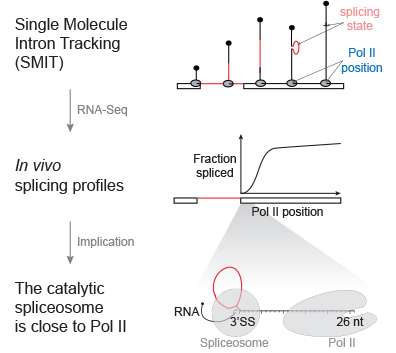Protein recipe requires precise timing

The activation of genes is a complicated biochemical endeavor akin to cooking a meal, and a new Yale study details just how precisely choreographed those steps need to be.
Do cells cook the meat entrée before the vegetable? Or are these dishes cooked simultaneously? The Yale team led by Karla Neugebauer examined the intricacies of RNA splicing—the removal of RNA segments (known as introns) encoded by DNA that do not contain instructions for making proteins. The splicing machinery stitches the RNA segments together into accurate copies of mature messenger RNA that in turn sets in motion the cell's protein-making machinery.
It was previously thought that splicing takes place well after transcription of the RNA segments. The Yale researchers found this crucial splicing step occurs as soon as the RNA is transcribed from the DNA template and that the timing of both transcription and splicing processes are precisely coordinated.
"It's like cooking Thanksgiving dinner: The turkey and mashed potatoes need to be completely cooked and hot when the feast is served," Neugebauer said.
The paper was published online March 24 in the journal Cell.
Journal information: Cell
Provided by Yale University


















